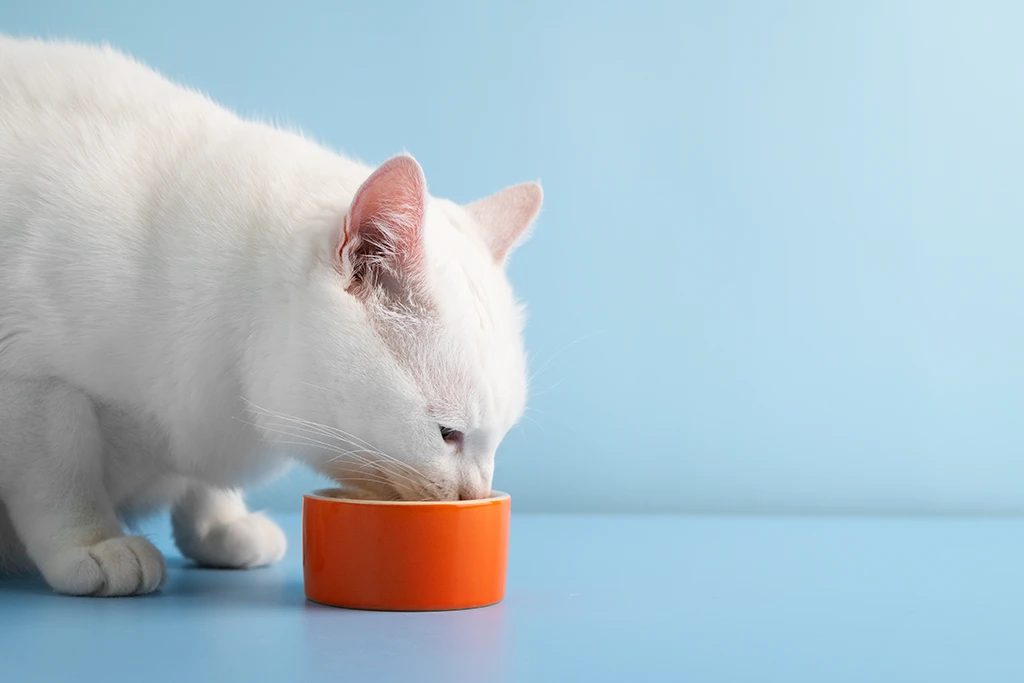

CBD oil is gaining popularity among pet parents. It’s touted for its potential to help with everything from anxiety to arthritis. But with this growing interest comes a troubling trend: fake CBD oil. Counterfeit products are not only ineffective but also potentially harmful to pets.
A study titled “Content versus Label Claims in Cannabidiol (CBD)-Containing Products Obtained from Commercial Outlets in the State of Mississippi” claimed that “Most CBD-containing products’ label claims are inaccurate, and products with excessive THC levels or synthetic cannabinoids may pose health risks,” (Gurley, B., et al., 2020).
To help pet owners protect their furry friends, this guide walks them through the red flags of fake CBD oil. Additional tips to help make informed choices are also explored because a pet’s health deserves the best!
Table of Contents
ToggleLet’s be real, CBD is awesome, but it’s not a miracle cure. While it shows promise for conditions like anxiety, pain, and inflammation, it’s not a magic bullet. Be wary of brands boasting their CBD oil cures all ailments. Instead choose a pet CBD brand that provides factual information.
Remember, CBD is a supplement, not a replacement for veterinary care. Always consult the pet’s attending veterinarian before starting the pet on any new treatment.
Producing quality CBD oil is a multi-step process. It involves harvesting hemp, extracting the CBD, testing for purity, and careful packaging. This all adds to the cost.
While affordable options exist, be cautious of extremely cheap CBD oil. If the price seems too good to be true, it probably is. Investing in a pet’s health is worth a few extra bucks.
Reputable CBD companies don’t offer free trials. It’s a common tactic used by scammers to collect credit card information. Steer clear of any “free” CBD oil offers – they’re likely just a way to lure pet parents in.
A COA, or Certificate of Analysis, is like a report card for CBD oil. It shows the levels of CBD, THC, and other compounds in the product. Third-party testing verifies the quality and purity of the oil.
A study showed that “Most CBD products tested showed low levels of heavy metals, pesticides, and mycotoxins, but some had higher levels of THC+, potentially indicating non-compliance with compositional and standards requirements,” (Science, F., 2022).
A reputable brand readily provide a COA from an independent lab. If a company does not provide this, it’s a major red flag.
Don’t be fooled by hemp seed oil masquerading as CBD oil. While hemp seed oil has its own benefits, it doesn’t contain the same amount of CBD. True CBD oil is derived from the flowers and leaves of the hemp plant, not from the seeds.
Do some research! Check online reviews and see what other pet owners are saying. A reputable company has plenty of positive feedback. If there are lots of negative reviews or complaints, it’s a sign to stay away.

Good Manufacturing Practices (GMP) registration means a company follows strict quality standards. It’s a good indicator that they’re committed to producing safe and effective products.
Organizations like the Better Business Bureau (BBB) provide valuable insights into a company’s reputation and business practices.
Is the label clear and accurate? Does it list the ingredients and CBD content? Be wary of vague descriptions, outrageous claims, or misspellings. These are signs of a less-than-reputable product.
Try contacting the company’s customer service. Are they responsive and helpful? If they’re difficult to reach or provide inconsistent information, it is a red flag.
Choosing the right CBD oil for a furry friend feels overwhelming. With so many options available, how do pet owners know what to look for? Don’t worry, this article aims to help! A guide on the key factors to consider when selecting a CBD oil for a pet is presented below.
The label is the first clue to a product’s quality. Here’s what to look for:
CBD Content: Check the amount of CBD per serving. This is usually measured in milligrams (mg). Choose a concentration that aligns with the pet’s needs and size.
Type of CBD: Is it CBD isolate, broad-spectrum, or full-spectrum? Full-spectrum contains a range of beneficial compounds from the hemp plant, including trace amounts of THC (less than 0.3%). Broad-spectrum is similar but without any THC. Isolate is pure CBD.
Ingredients: Look for natural ingredients and avoid artificial additives or flavors.
Always choose products that have undergone third-party testing. This means an independent lab has verified the quality and purity of the CBD oil. Look for a Certificate of Analysis (COA) that shows the levels of CBD, THC, and other compounds. It also indicates that the product is free from contaminants like heavy metals and pesticides.
CBD oil comes in various forms to suit the pet’s preferences:
Tinctures: These are liquid extracts that are given directly or added to food. They offer flexibility in dosing.
Treats: CBD-infused treats are a tasty way to administer CBD, especially for picky eaters.
Topicals: Balms and creams are applied directly to the skin for localized relief.
Capsules: Capsules offer a pre-measured dose but are harder to administer to some pets.
Consider the pet’s personality and needs when choosing the best form.
Do research on the brand. Look for companies with a good reputation, positive customer reviews, and transparent business practices.

The legality of CBD is a bit of a puzzle. It’s like trying to assemble a bookshelf without the instructions – a bit confusing and potentially frustrating. But don’t worry, the discussion below sheds some light on this complex issue.
The 2018 Farm Bill was a significant step. It legalized hemp, a variety of cannabis that contains less than 0.3% THC. This opened the door for the legal production and sale of hemp-derived CBD.
While hemp-derived CBD is federally legal, there are still some gray areas. The FDA hasn’t fully approved CBD as a dietary supplement or food additive. This means there’s a lack of regulation, and product quality varies significantly.
To make things even more complicated, each state has its own laws regarding CBD. Some states have fully embraced it, while others have restrictions. It’s like a patchwork quilt of regulations – each state has its own unique pattern.
It’s essential to research the state’s specific laws regarding CBD. Choose products from reputable brands that provide third-party lab testing to ensure quality and safety. Always consult the pet’s veterinarian before starting a pet on CBD.
The pet’s attending veterinarian provides valuable guidance on choosing the right CBD oil and dosage for a pet’s specific needs. They also help monitor for any potential side effects. However, not all veterinarians welcome the use of CBD because studies are still ongoing. Nevertheless, If a pet parent wants to explore the benefits of CBD, consult a holistic veterinarian for proper clinical assessment of the pet and guidance on CBD use.
By following these tips, pet owners confidently choose a high-quality CBD oil that supports their pet’s health and well-being.
Still have some questions about spotting fake CBD oil? Keep reading!
Nope! Hemp seed oil and CBD oil are different. Hemp seed oil comes from the hemp plant’s seeds and doesn’t contain the same amount of CBD. On the other hand, CBD oil is extracted from the flowers and leaves. Make sure the label clearly states “CBD oil” or “full-spectrum hemp extract.”
Fake CBD oil contains harmful ingredients like pesticides, heavy metals, or even synthetic cannabinoids. A study showed that “11 out of 362 hemp-based products (mostly CBD oils) contained 9-THC levels above the lowest observed adverse effect level (2.5 mg/day), indicating potential contamination,” (Lachenmeier, D., et al., 2019). )
These make a pet sick. Plus, fake CBD oil does not contain the amount of CBD it claims, making it ineffective.
Contact the pet’s veterinarian immediately. They clinically assess the pet’s condition and provide the necessary care.
It’s tricky. Amazon currently prohibits the sale of CBD products. So, if there’s a “CBD oil” on Amazon, it’s likely mislabeled hemp seed oil or a fake product. It’s best to buy directly from reputable CBD brands.
Look for transparency! Reputable brands readily provide third-party lab test results (COAs). They also have clear labeling, positive customer reviews, and good customer service.
Hemp-derived CBD oil with less than 0.3% THC is federally legal. However, state laws vary. It’s always best to check the local regulations and consult the pet’s veterinarian.
Hopefully, these FAQs help clear up any lingering questions. Remember, the pet’s health is worth the extra effort to ensure pet owners are choosing safe and effective CBD products.
Spotting fake CBD oil requires a bit of detective work. But by being aware of the red flags and following these tips, pet owners protect their pets from potentially harmful products.
Remember, the pet’s health is precious. Choose reputable brands, consult the pet’s veterinarian, and always prioritize quality and safety. With a little vigilance, pet parents ensure their furry friend gets the best possible CBD experience.
References

Table of Contents
Toggle